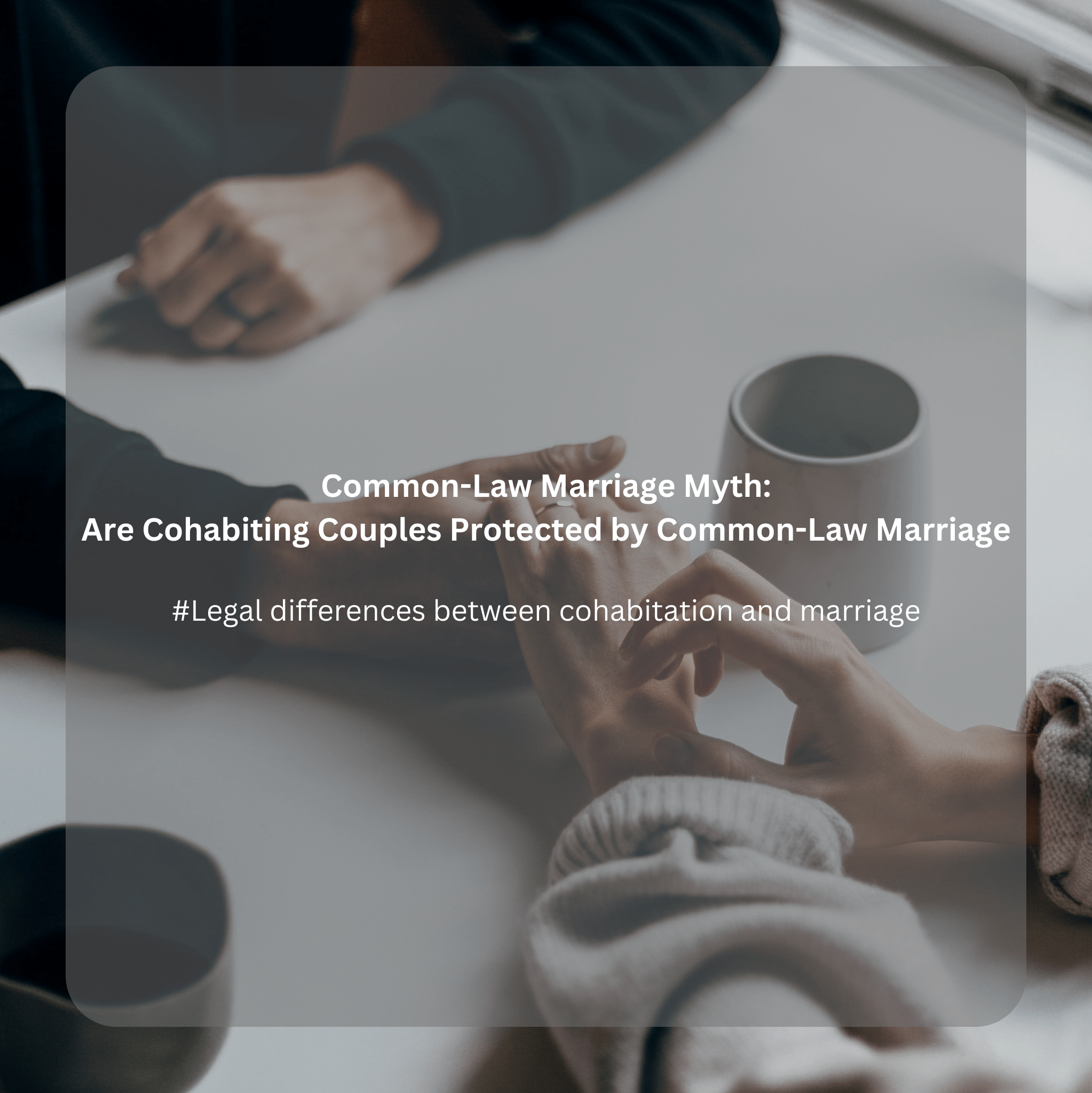Common-Law Marriage Myth: Are Cohabiting Couples Protected by Common-Law Marriage?
#Legal differences between cohabitation and marriage
“Does living together automatically grant us the legal rights and protections of a married couple?” The short answer is no. There is a common misconception that couples who live together for a longer period of time acquire the same legal rights, or ability to claim against the other person, as a married couple. This is not the case.
The “common-law marriage” myth has been perpetuated for many years with many newspapers and journalist frequently using the term within their publications. In England and Wales, there is no legal position or definition of a “common-law spouse” and there are no automatic rights granted to couples that cohabit.
Understanding the Common-Law Marriage Myth:
Whilst other jurisdictions may recognise and give legal rights to cohabiting couples, it is important to note that common-law marriage is not universally recognised. In England and Wales, “common-law marriage” does not exist.
So, let’s begin by unravelling the myth and clarifying the legal differences between cohabitation and marriage.
Legal Differences:
- Legal Rights and Protections
Married couples enjoy specific legal rights and protections which cohabiting couples may not have. These rights include spousal support, tax benefits, and the ability to claim against the assets of the other person under English Law. Cohabiting couples are not automatically afforded these rights and therefore need to ensure that their position is protected. One way in which cohabiting couples can regulate their obligations is to create a cohabitation agreement.
- Property Rights
Married couples are afforded particular rights and protections in relation to property: for example, whilst the couple remains married, a person will have the right to occupy the matrimonial home even if the property is held legally in their spouse’s sole name. For cohabiting couples, there is no inherent right of occupation and this means that on separation, if you do not have an established interest in the property in which you live, you could legally be excluded from the place you consider home with little to no notice. The position generally in relation to cohabiting couples is therefore more complex than married couples and so it is often wise for them to clearly, and legally, set out their rights and obligations.
- Divorce vs. Separation
Ending a marriage involves divorce proceedings and negotiations about the financial assets of the marriage. This is governed by a single piece of legislation called the Matrimonial Causes Act 1973. There is no single piece of legislation which deals with cohabiting couples who separate and therefore the legal issues, and protections – or lack thereof – can be more complicated.
Given the legal differences between cohabitation and marriage, couples may choose to create cohabitation agreements set out their agreement in relation to issues which may otherwise be contentious and discuss what may happen in the event of separation.
The common-law marriage myth often leads to misunderstandings about the legal rights and protections of cohabiting couples. Understanding the legal differences between cohabitation and marriage is crucial for making important decisions about a relationship.
If you want to seek legal guidance regarding cohabitation agreements or family law matters, our legal team at Hill and Company Solicitors is here to assist you. Don’t hesitate to reach out to us on 0161 928 3201 or email This email address is being protected from spambots. You need JavaScript enabled to view it..




